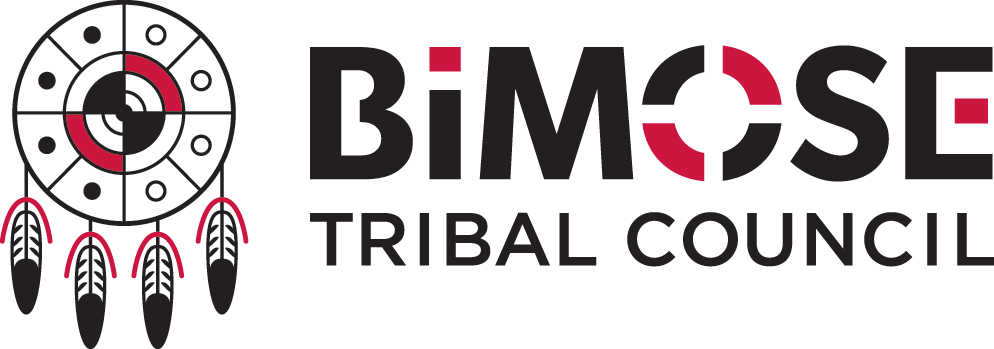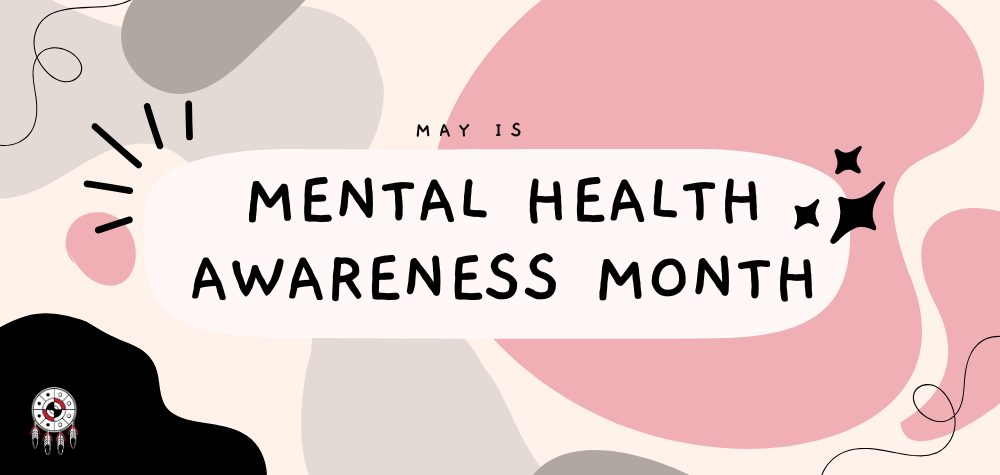
The stigma around mental health and treatment has long existed, even though this has started to change, we still have a long way to go to break down the stigma. Because of the stigma people hesitate to seek help or talk about it with their loved ones for fear of being judged and facing unnecessary backlash. If we are hurt physically, we are taught it is acceptable to seek medical treatment to get better; mental health should be seen the same way.
"Mental health" and "mental illness" are not the same. Mental health is similar to your physical health in that refers to a state of well-being. Mental health includes our emotions, feelings of connection to others, our thoughts and feelings, and being able to manage life's highs and lows. Everyone has mental health and will experience challenges regarding their mental well-being, but not everyone will experience a mental illness.
The presence or absence of a mental illness is not a predictor of mental health; someone without a mental illness could have poor mental health, just as a person with a mental illness could have excellent mental health because they have developed the skills to cope.
Who is affected by mental health?
- Everyone has mental health and will experience challenges regarding their mental well-being, but not everyone will experience a mental illness.
- Mental illness indirectly affects all Canadians at some time either through their own experience, or that of a family member, friend or colleague.
- In any given year, 1 in 5 people in Canada will personally experience a mental health problem or illness.
- Approximately 20% of Canadian youth are affected by a mental illness or disorder
- By age 40, about 50% of Canadians will have or have had a mental illness.
- In Canada, suicide disproportionately impacts Indigenous peoples; the rate of suicide among First Nations is three times higher than among non-Indigenous Canadians, and nine times higher among Inuit.
- Major depression affects approximately 5.4% of the Canadian population, and anxiety disorders affect 4.6% of the population.
If you are struggling and need assistance, below is a list of local resources you can access for support:
Canadian Mental Health Association Kenora
227 Second Street South
807-468-1838
Kenora Chiefs Advisory Mental Wellness and Cultural Support
807-467-8144
Kenora Rainy River District Crisis Response Services Crisis Line
1-866-888-8988
www.crisisresponseservices.com
FIREFLY NorthWest Priority Response
807-467-5437
https://www.fireflynw.ca
Kids Help Phone
1-800-668-6868
https://www.cmhak.on.ca/index.php/referral-form
https://youthhubs.ca/en/sites/kenora
Kids Help Phone - Crisis Text Line
Text the word CONNECT to 686868
Additional Services
https://northwesthealthline.ca
Bimose Tribal Council Mental Health Graphic Resources:
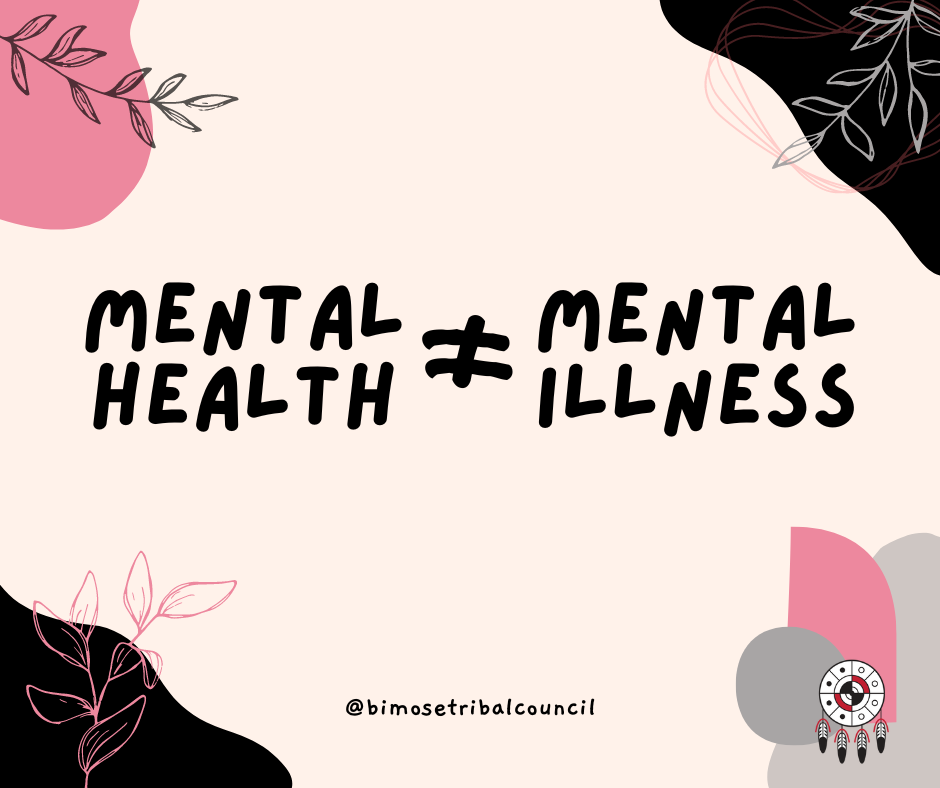
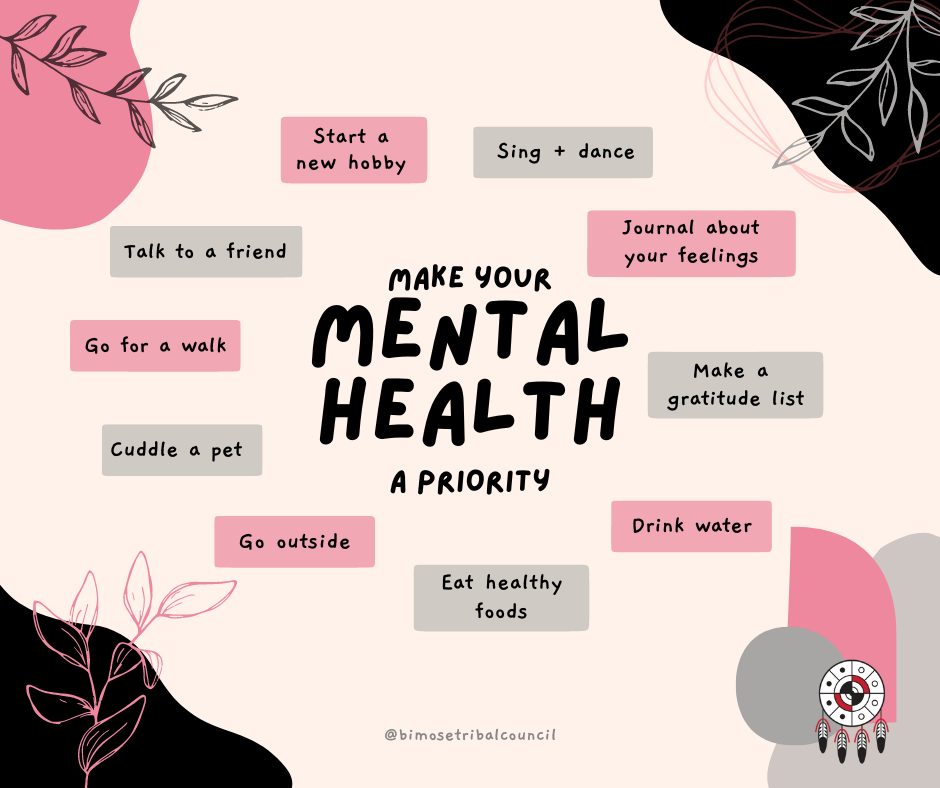
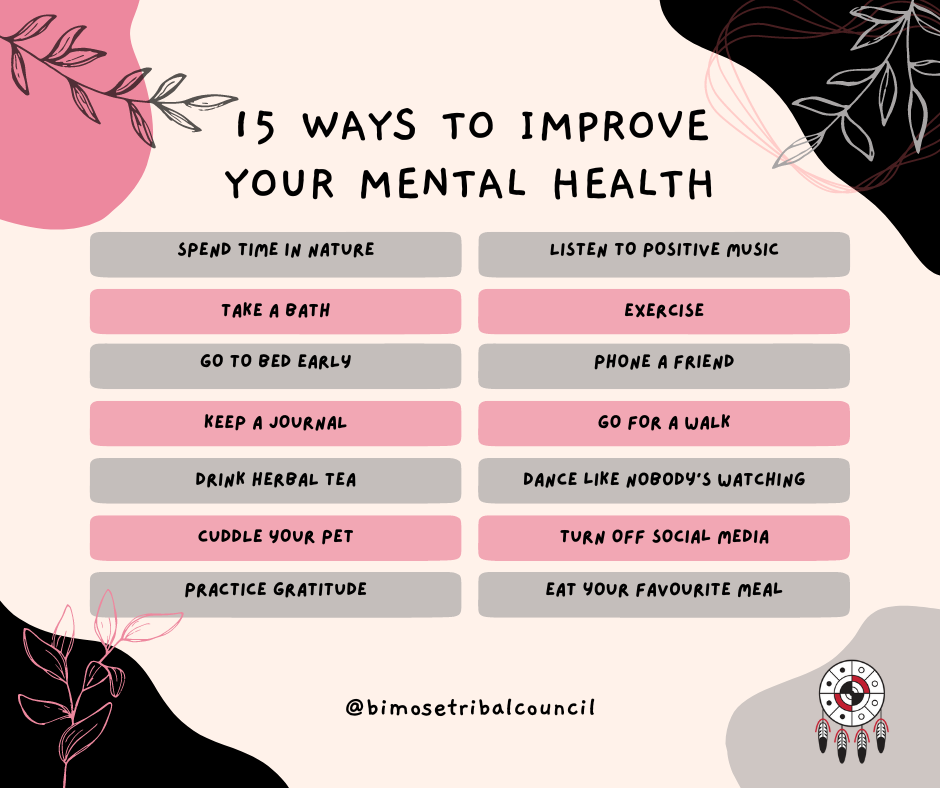
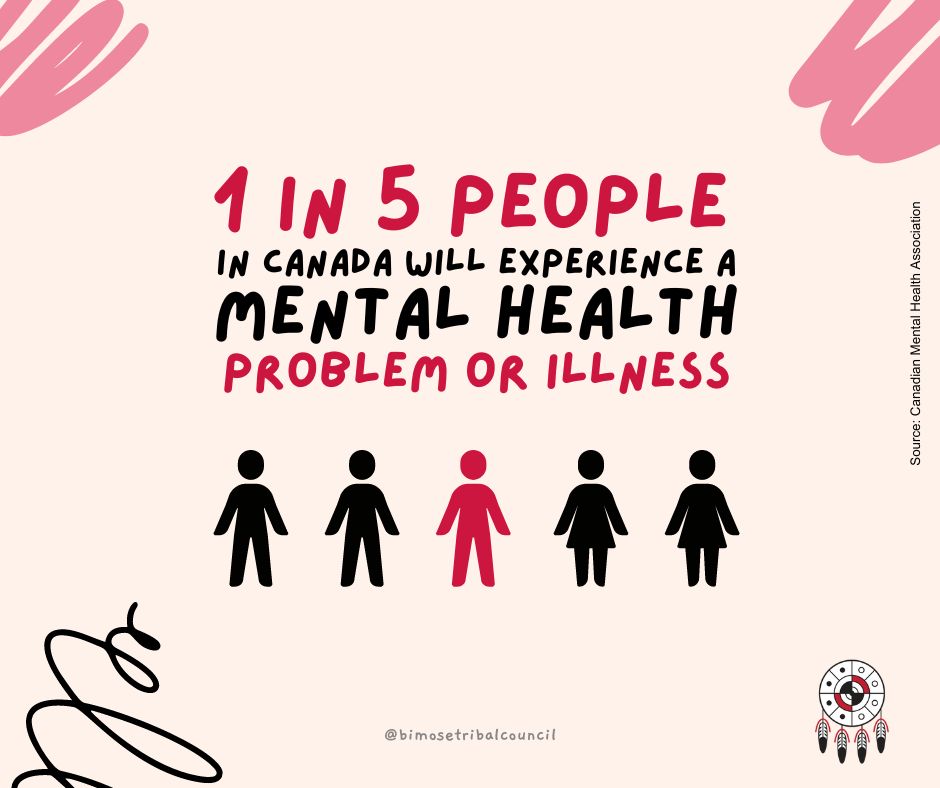
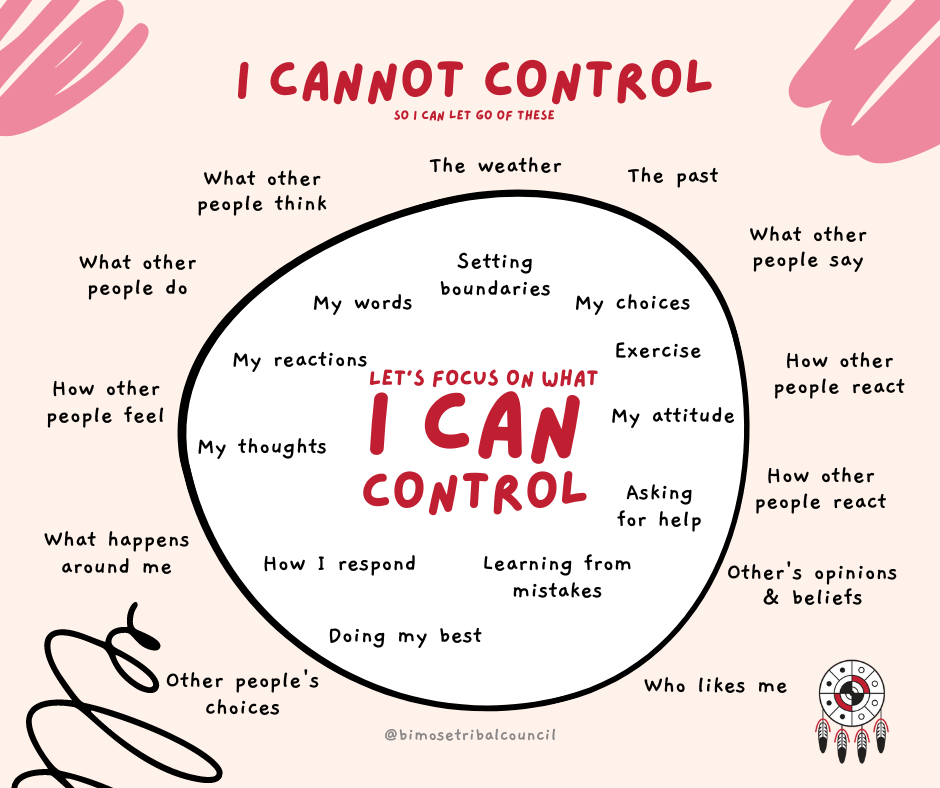
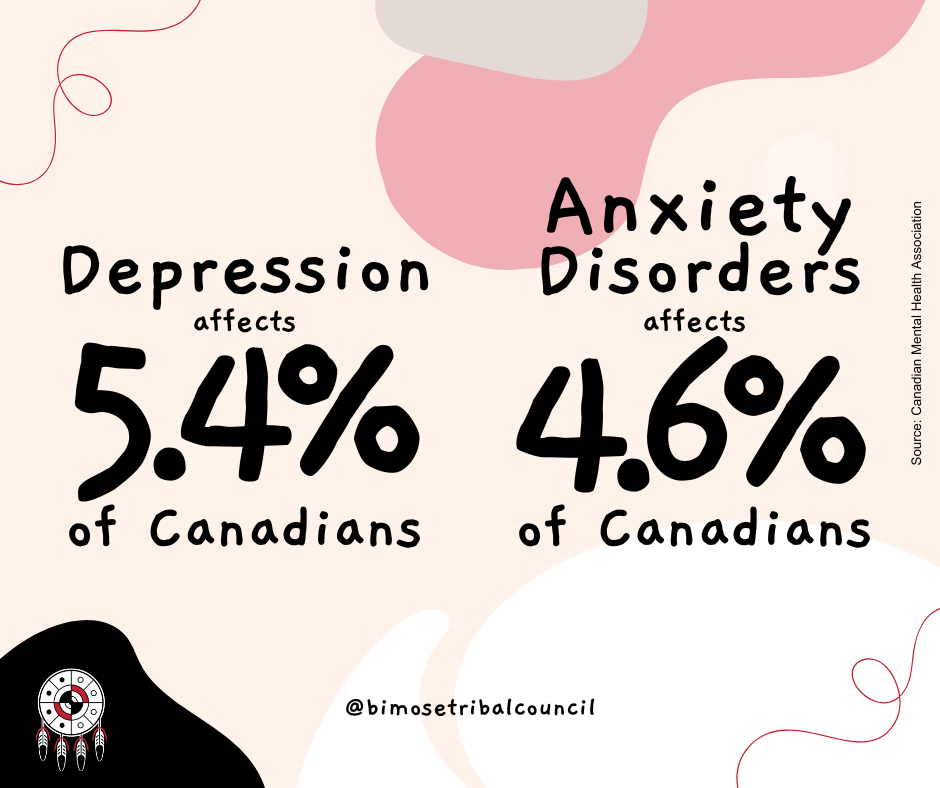
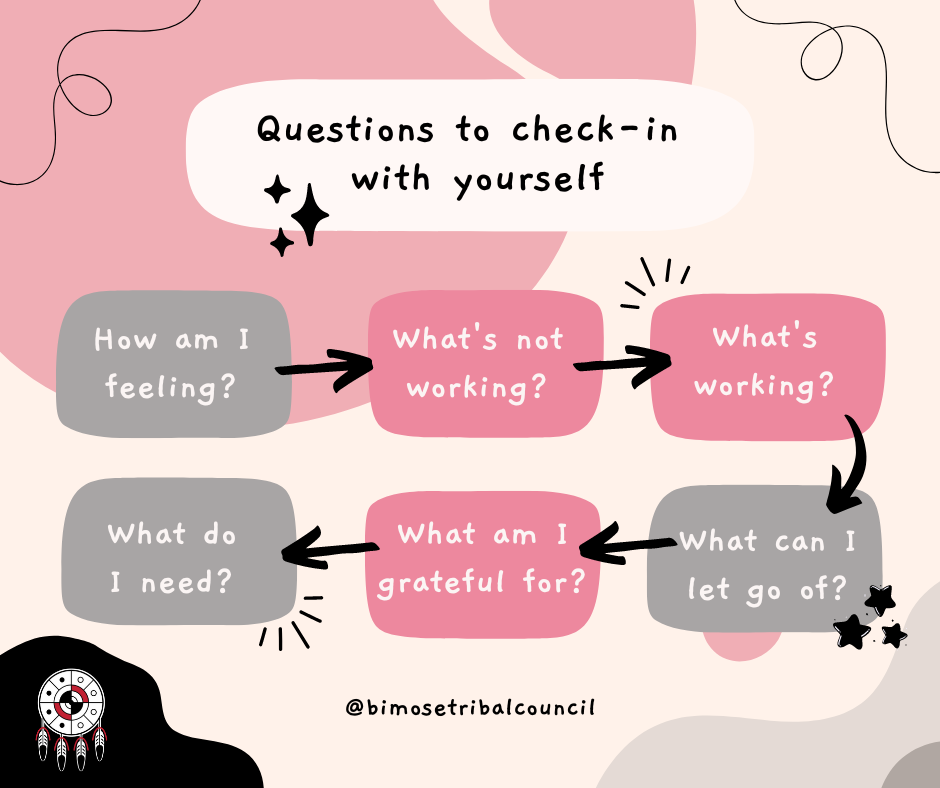
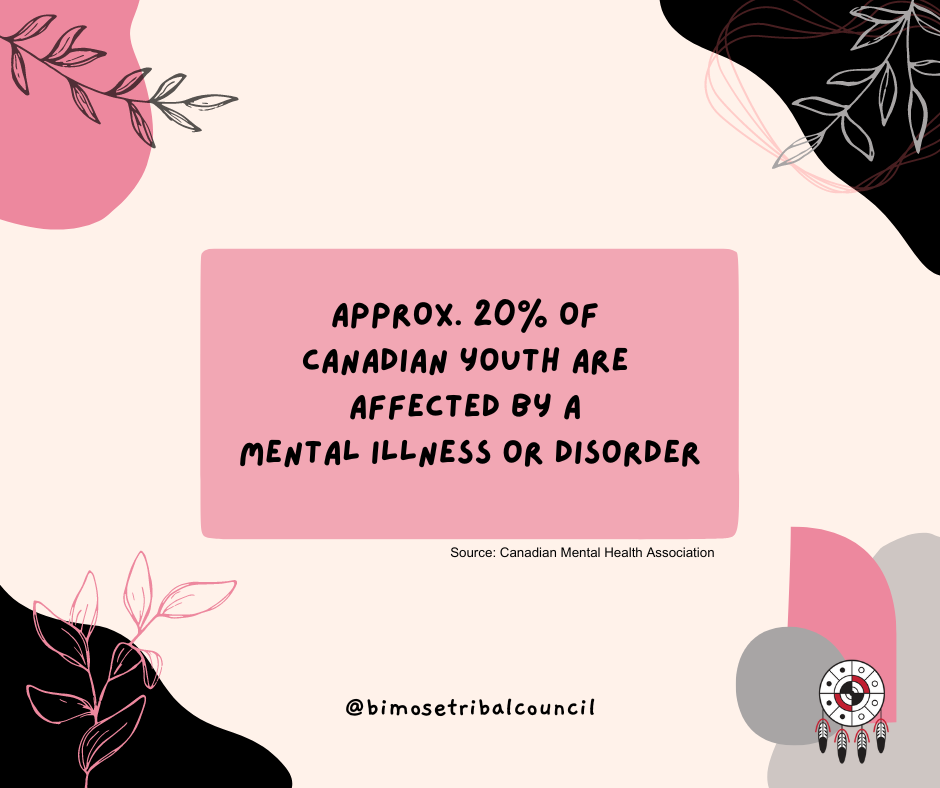
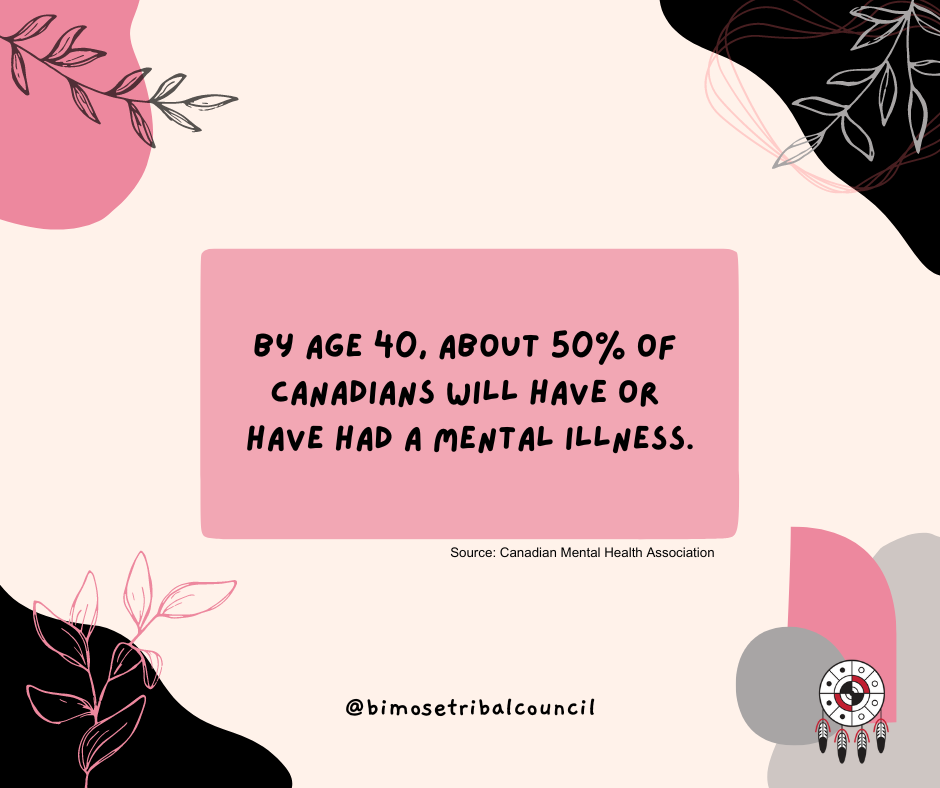
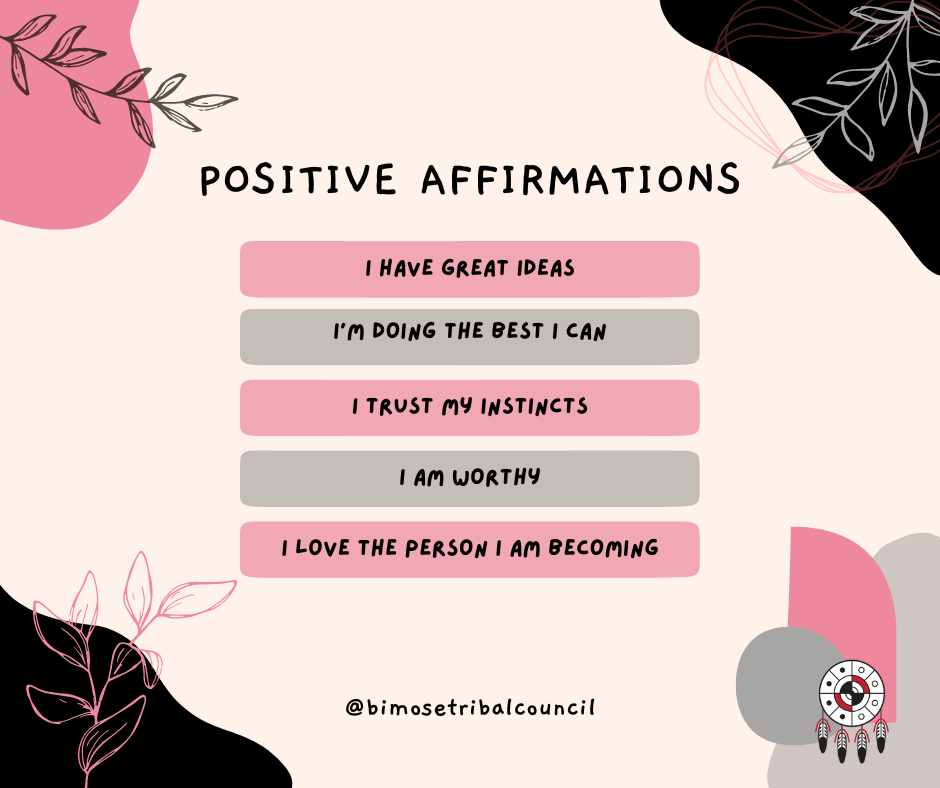
Sources
Canadian Mental Health Association, National
https://cmha.ca/brochure/fast-facts-about-mental-illness/#_edn8
